Ashish Arora Heinz School, Carnegie Mellon
Margo Bagley University of Virginia Law School
Hank Barry Howard Rice
Miriam Bitton Boalt Hall School of Law
Dan Burk University of Minnesota Law School
Thomas E. Ciotti Morrison & Foerster & AIPLA
Bassil Dahiyat Xencor
Sean DeBruine Akin Gump Strauss Hauer & Feld LLP
Becky Einsberg University of Michigan Law School
Brad Feld Mobius Venture Capital
Pryor Garnett IBM
Robert Glushko UC Berkeley, iSchool
Michael Goldberg Mohr Davidow Ventures
Stuart Graham BCLT Kauffman Fellow, UC Berkeley
Josh Green Mohr Davidow Ventures
David Harnet Microsoft Corporation
Matthew Hinsch Townsend and Townsend and Crew LLP
Elizabeth Howard Orrick, Herrington & Sutcliffe LLP
F. Scott Kieff Washington University Law School
Jason Kipnis Weil Gotshal & Manges LLP
Victoria Lee DLA Piper US LLP
Douglas Lichtman UCLA School of Law
Robert Litan Kauffman Foundation
Peter Menell BCLT, UC Berkeley School of Law
Robert Merges BCLT, UC Berkeley School of Law
Michael Meurer Boston University School of Law
Suzanne Michel Federal Trade Commission
Donald Min Knobbe Martens Olson & Bear LLP
Gladys Monroy Morrison & Foerster LLP
Emily Morris University of Michigan Law School
Mark Myers Wharton Business School, University of Pennsylvania
Sean Pak Latham & Watkins LLP
Lawrence Pope Mayer Brown LLP
Matt Powers Weil, Gotshal & Manges LLP
Arti Rai Duke Law School
Pam Samuelson BCLT, UC Berkeley School of Law & iSchool
Suzanne Scotchmer UC Berkeley, Economics and Public Policy
Margaret Taylor UC Berkeley, Goldman School of Public Policy
James Toupin United States Patent and Trademark Office
Lee Van Pelt Van Pelt, Yi & James LLP
Craig Walker GrandCentral
Mark Weinstein White & Case LLP
Rosemarie Ziedonis Stephen M. Ross School of Business, University of Michigan

Ashish Arora is Professor of Economics and Public Policy in the Heinz School. He served as a co-director of the Software Industry Center at Carnegie Mellon University till 2006. He is on the editorial board of six academic journals, and has served on a number of committees for bodies such as the National Academy of Sciences and the Association of Computing Machinery.
Arora’s research focuses on the economics of technology and technical change. His research interests include the study of technology intensive industries such as software, biotechnology and chemicals, the role of patents and licensing in promoting technology startups, and the economics of information technology. His work has been published in journals such Management Science, Research Policy, Strategic Management Journal, Journal of Industrial Economics, The Journal of Industrial Economics and Journal of Economic Behavior and Organization. His recent book is on the growth of the software industries in emerging economies: From Underdogs to Tigers? The Rise and Growth of the Software Industry in Brazil, China, India, Ireland, and Israel, (edited with Alfonso Gambardella), Oxford University Press, February, 2005.
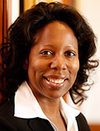
Margo Bagley teaches courses on patent law, international and comparative patent law, intellectual property, fundamentals of innovation, and contracts. After receiving a Bachelor of Science degree in Chemical Engineering in 1986, Bagley worked in products research and development with the Procter & Gamble Company, where she was named Product Development Excellence “Rookie of the Year” and was co-inventor on a U.S. patent for improved peanut butter. Later, she worked as a senior research analyst for the Coca-Cola Company. Through her corporate experience, Bagley developed an interest in the law of intellectual property.
Bagley received her J.D. in 1996 from Emory, where she was a Robert W. Woodruff Fellow, an editor of the Emory Law Journal, and was elected to Order of the Coif. She is a member of the Georgia bar and is licensed to practice before the U.S. Patent & Trademark Office. Bagley worked as an associate with Smith, Gambrell & Russell and Finnegan, Henderson, Farabow, Garrett & Dunner before becoming an assistant professor of law at Emory University in 1999. She was a visiting professor of law at Washington & Lee University School of Law in Fall 2001 and at the University of Virginia School of Law in Fall 2005. She has also taught international patent law and

Henry Barry is a director with Howard, Rice, Nemerovski, Canady, Falk, and Rabkin’s Business Department and member of the Intellectual Property Counseling & Transactions Group. Mr. Barry represents high growth technology companies at all stages of development, with a particular focus on intellectual property, commercial strategy and venture capital. Prior to joining Howard Rice, Mr. Barry was a partner at Hummer Winblad Venture Partners and, on behalf of Hummer Winblad, served as CEO and a board member for Napster, Inc. from 2000 to 2002. Before joining Hummer Winblad, Mr. Barry was a partner at Wilson Sonsini Goodrich & Rosati, where he was the principal legal counsel to several pioneering Internet and digital media companies, including BizRate, Employease, Global Village Communications, Looksmart, Liquid Audio, NetDynamics and Upshot. He has also represented several notable entertainment and consumer electronics companies, including A&M Records, Amazon.com, Disney Online and Apple Computer.
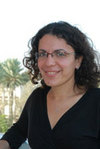
Miriam Bitton is the Microsoft Research Fellow for BCLT. From 2003 to 2004, Miriam was a visiting fellow at the George Washington University. Prior to attending the University of Michigan, Miriam earned both her bachelors of law (L.L.B.) and masters of law (M.A.), magna cum laude, from the Bar-Ilan University in Israel. After graduation, Miriam served as a law clerk to the Honorable Jacob Turkel of the Israeli Supreme Court and to the Honorable Elyakim Rubinstein, the Attorney General of Israel. Prior to joining BCLT, Miriam worked as a litigation associate with the patent litigation workgroup of Irell & Manella, LLP. Her current research agenda focuses on the treatment of information in patent law.

Dan Burk is an internationally prominent authority on the law of intellectual property, who specializes in the areas of cyberlaw and biotechnology. After visiting at the University of Minnesota during the 1999-2000 academic year, Professor Burk joined the Law School faculty in the Fall of 2000 as Professor of Law and Vance K. Opperman Research Scholar. During 2001-2002, he held the Julius Davis Chair in Law. He currently holds the Oppenheimer, Wolff & Donnelly Professorship in Law.
Professor Burk holds appointments at both the Law School and the Center for Bioethics. He has also been closely involved in the development of the Joint Degree Program in Law, Health, and the Life Sciences, and in the creation of the University’s Internet Studies Center. He teaches courses in Copyright, Patent, and Biotechnology Law, and is the author of numerous papers on the legal and societal impact of new technologies, including articles on scientific misconduct, on the regulation of biotechnology, and on the intellectual property implications of global computer networks.

Thomas E. Ciotti is a partner and co-founder of the Venture Intellectual Property group, and founder of the biotechnology/chemistry, medical device, and greentech patent groups at Morrison & Foerster LLP. Mr. Ciotti has over 40 years of experience in life sciences intellectual property law and is regularly acknowledged by his peers as one of the top life sciences intellectual property lawyers in the United States. Mr. Ciotti is one of a distinguished group of attorneys who have been listed in The Best Lawyers in America for ten years. He was one of the first biotechnology patent attorneys and represented, and continues to represent, universities and corporations that pioneered the field of biotechnology. For many years Mr. Ciotti’s practice revolved around counseling emerging life science companies, not only in the chemistry/biotech field, but also in the medical device field. In the course of doing so, he has served as principal intellectual property counsel to numerous biotechnology and medical device companies. Due diligence counseling from both the investor and company sides has always been a significant part of his practice. In recent years venture side due diligence has become the mainstay of Mr. Ciotti’s practice and a critical and important part of Morrison & Foerster’s intellectual property practice. With the recent interest in renewable energy/cleantech by the venture capital community, Mr. Ciotti’s practice has grown to include those technologies. Mr. Ciotti holds chemical engineering and law degrees from the University of Michigan. He was president of the San Francisco Intellectual Property Law Association and has served as chairman of the Intellectual Property Section of the State Bar of California.

Bassil Dahiyat is the President and CEO of Xencor. Dr. Dahiyat co-founded Xencor in 1997 to commercially leverage his and Dr. Stephen Mayo’s seminal work at Caltech on proteins and the development of Protein Design Automation™ technology. Under Dr. Dahiyat’s leadership, Xencor has applied PDA to develop a pipeline of proprietary protein and antibody drug candidates, both internally and in partnership with leading biotechnology and pharmaceutical companies. He drives the company’s fundraising efforts, and has secured more than $85 million in financing to date. Dr. Dahiyat also leads the company’s scientific programs and has been instrumental in growing the company’s broad intellectual property portfolio. He is an inventor on 60 patents and patent applications, including Xencor’s Protein Design Automation® platform, and a co-author of 18 scientific papers. In 2005, Dr. Dahiyat was recognized as a technology pioneer by the World Economic Forum. Additionally, Dr. Dahiyat was named one of 2003’s Top 100 Young Innovators by MIT’s Technology Review magazine for his work on protein design and its development for therapeutic applications and has received awards from the American Chemical Society, the Controlled Release Society and Caltech. Dr. Dahiyat holds a Ph.D. in chemistry from Caltech and B.S. and M.S.E. degrees in biomedical engineering from Johns Hopkins University.

Sean Debruine has represented clients in patent, copyright and trade secret disputes involving a variety of technologies, including microprocessor, memory and communications semiconductor devices, computer software, Internet infrastructure and business methods, personal computer system design, and disk drive electronic and mechanical designs. Mr. DeBruine has also handled a number of general commercial and contract disputes. He has appeared at trials in U.S. District Court, the U.S. International Trade Commission and the Court of International Trade, and in appeals before the U.S. Court of Appeals for the Federal Circuit. In other instances, he has counseled clients and negotiated with opposing parties to resolve disputes without recourse to costly litigation.
Prior to joining Akin Gump, Mr. DeBruine was of counsel to Fenwick & West, LLP and an associate at Cooley Godward LLP and at Wilson Sonsini Goodrich and Rosati LLC. Before entering the legal field, he held a number of management positions with Charles Schwab Corp.
Mr. DeBruine received his A.B. in 1982 and his J.D. in 1993 from the University of California, Berkeley. He is a member of the State Bar of California and its Intellectual Property and Litigation Sections, as well as the American Intellectual Property Law Association, the Federal Circuit Bar Association and the Bar Association of San Francisco. He is admitted to practice before a number of U.S. district courts, the U.S. Court of International Trade and the U.S. Courts of Appeals for the 9th and Federal Circuits.
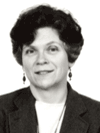
Becky Einsberg is a graduate of Stanford University and Boalt Hall School of Law at the University of California, Berkeley, where she was articles editor of the California Law Review. Following law school she served as law clerk for Chief Judge Robert F. Peckham on the United States District Court for the Northern District of California and then practiced law as a litigator in San Francisco. She joined the University of Michigan Law School faculty in 1984. Professor Eisenberg regularly teaches courses in patent law, trademark law, FDA law, and runs workshops on intellectual property and student scholarship. She has previously taught courses on torts, legal regulation of science, and legal issues in biopharmaceutical research. She has written and lectured extensively about the role of intellectual property in biopharmaceutical research, publishing in scientific journals as well as law reviews. She spent the 1999-2000 academic year as a visiting professor of law, science and technology at Stanford Law School. She has received grants from the program on Ethical, Legal, and Social Implications of the Human Genome Project from the U.S. Department of Energy Office of Biological and Environmental Research for her work on private appropriation and public dissemination of DNA sequence information. Professor Eisenberg has played an active role in public policy debates concerning the role of intellectual property in biopharmaceutical research. She is a member of the Advisory Committee to the Director of the National Institutes of Health, the Panel on Science, Technology and Law of the National Academies, and the Board of Directors of the Stem Cell Genomics and Therapeutics Network in Canada. Professor Eisenberg is the Robert and Barbara Luciano Professor of Law.

Brad Feld Prior to Mobius, Brad founded Feld Technologies, which was sold to AmeriData Technologies in 1993, where he became Chief Technology Officer. Brad currently serves on the boards of a number of private companies, including Atreus, DataPower, ePartners, Gold Systems, Klocwork, Newmerix, NewsGator, Quova, Rally Software, and StillSecure. In addition, he is on the board of two non-profit organizations – National Center for Women & Information Technology, and The Colorado Conservation Trust. Brad has previously been a member of the board of directors of the Young Entrepreneurs Organization, and founded the Boston and Colorado chapters. Brad is also the co-author of www.askthevc.com which is a popular blog dealing with all types of venture capital issues. He holds Bachelor of Science and Master of Science degrees in Management Science from the Massachusetts Institute of Technology.
Brad loves to read, is an avid marathoner, believes computers are his friend, is happily married to an amazing person, has two gigantic golden retrievers, and tries to enjoy himself every day as he subscribes to the “you only get one chance” view of life.

Pryor Garnett is IBM Senior Counsel for Storage Products and the Pacific Rim, with executive responsibility for their intellectual property legal support. He directly manages the IP Law teams supporting the Storage Products business and IBM India, supervises the delivery of IP Law support to the Asia-Pacific region, and provides regional IP Law coordination in the Western United States. He has been and remains active in the AIPLA. His primary technical expertise in is software and systems, and he has prepared, prosecuted and analyzed many such patents. He graduated from MIT in 1979 in civil engineering and from the University of Washington School of Law in 1985, and is admitted to practice law in Oregon, Washington, California, New York and Minnesota, and as a patent attorney before the U.S. Patent and Trademark Office. Pryor works from the IBM Beaverton (Oregon) site.
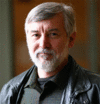
Robert Glushko is an Adjunct Full Professor at the University of California at Berkeley in the School of Information, the Director of the Center for Document Engineering, and one of the founding faculty members of the Information & Service Design program.
He has nearly thirty years of R&D, consulting, and entrepreneurial experience in information systems and service design, content management, electronic publishing, Internet commerce, and human factors in computing systems. He founded or co-founded three companies, the last of which was Veo Systems in 1997, which pioneered the use of XML for electronic commerce before its 1999 acquisition by Commerce One. Veo’s innovations included the Common Business Library (CBL), the first native XML vocabulary for business-to-business transactions, and the Schema for Object-Oriented XML (SOX), the first object-oriented XML schema language. From 1999-2002 he headed Commerce One’s XML architecture and technical standards activities and was named an “Engineering Fellow” in 2000.
He is a member of the Board of Directors for OASIS, an international consortium that drives the development, convergence, and adoption of “open standards for the global information society,” and on the Board of Directors for the Open Data Foundation, dedicated to the adoption of global metadata standards for statistical data. He is the President of the Robert J. Glushko and Pamela Samuelson Foundation, which sponsors the annual Rumelhart Prize in Cognitive Science.
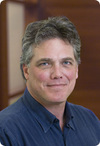
Michael Goldberg joined MDV in 2005 and leads life science investments in the areas of molecular diagnostics, personalized medicine and wireless healthcare with particular interest in oncology, cardiology and neuroscience. He also leverages his knowledge of plant genetics and microbiology in support of the firm’s energy investing.
Prior to joining MDV Michael was Managing Director of Jasper Capital and Co-chair of the California Research and Cures Coalition ($3 billion Prop 71 stem cell campaign). He has also held senior management and operations roles including serving as Chairman and CEO of OnCare, an oncology services company he founded in 1995.Previously, Michael was Founder and Chief Executive Officer of Axion Inc., a cancer-focused healthcare service company he started in 1987 and sold to Bristol-Myers Squibb in 1996. Prior to his tenure with Axion, Michael was a member of the Operating Committee and director of Corporate Development at Cetus Corporation (Novartis), one of the first biotech companies and the developer of PCR technology. He was also a co-founder of Agracetus, a joint venture with W.R. Grace & Co. (Monsanto), involved in plant genetic engineering. He was responsible for the commercialization of the company’s agricultural technology.
Michael serves as a Board Member of the California Institute for Regenerative Medicine. He is also on the advisory councils of the Harvard Center for Genetics and Genomics and the Stanford Neuroscience Institute. Michael is a member of the Personalized Medicine Coalition and an honorary trustee of the National Childhood Cancer Foundation.
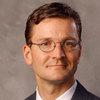
Stuart Graham is focusing his research on intellectual property strategies for business and patent policy, particularly in the area of patent reform. He is on leave at BCLT from the Georgia Institute of Technology (College of Management) where he is an Assistant Professor in the Strategic Management group. He has published several research articles on the post-grant patent opposition system, and company patent strategies in the software and biotechnology industries.

Josh Green joined MDV’s investing team with a focus on Cleantech companies. Cleantech spans multiple, independent value chains ranging from solar to biofuels to clean coal. Josh applies his experience in a broad range of industries including semiconductors, biotechnology and networking to help Cleantech entrepreneurs define their markets and products.
Josh has more than 25 years of experience working with companies from startup phase to large public company, and has helped many management teams focus their energy on building value for the enterprise and its stakeholders. Throughout his career he has guided entrepreneurs and helped to build some of the most successful emerging growth companies in Silicon Valley including the Internet (Yahoo!), biotechnology (Geron), medical devices (Target Therapeutics), telecommunication/networking (Cerent) and semiconductors (Xilinx).
He has completed initial public offerings, mergers and acquisitions and venture capital transactions that rank among the largest and most successful in Silicon Valley history. Together, these transactions total more than $10 billion dollars. His work was recognized when he was named to the Forbes Midas List.

David Harnett is the founder and leader of Microsoft’s IP Ventures Group. IP Ventures spins out and licenses technology from Microsoft’s research labs and has successfully set up new ventures in the US and Europe. Prior to leading Microsoft IP Ventures, David worked in Microsoft’s Corporate Strategy group and in the Server & Tools Division’s business strategy group. He joined Microsoft in 2001. Prior to joining Microsoft, David worked in Hewlett Packard’s Corporate Development Group focusing on acquisitions and venture capital investments. David also spent time with Accenture in a management consulting role and with a software start-up company in a business development role. David holds an MBA from Kellogg School of Management and Bachelor’s & Master’s Degrees from University College Dublin, Ireland.

Mathew Hinsch’s practice concentrates on patent prosecution, primarily within the field of biotechnology. He has advised clients in multiple technical areas, including immunology, plant biology, disease therapeutics and diagnostics, and molecular biology.
In his practice, Dr. Hinsch represents a wide variety of clients, including academic institutions, start-up biotechnology and drug discovery companies, and large pharmaceutical companies. He assists clients with patent prosecution, freedom to operate analyses, validity/infringement opinions, interferences, due diligence reviews, and patent portfolio management.
Research for his Ph.D. involved plant molecular biology and the study of the molecular basis of disease resistance in plants.

Elizabeth Howard, an intellectual property partner in the Silicon Valley office, is co-chair of the firm’s life sciences practice. She focuses her practice on patent infringement litigation, with an emphasis on the life sciences. Her practice also includes trade secret disputes and handling anti-counterfeiting matters in the pharmaceutical industry. In addition to litigating in numerous federal district courts and California state courts, Dr. Howard has appeared before the U.S. PTO in interference proceedings, arbitrated before the International Chamber of Commerce. She is listed in PLC, life sciences: intellectual property. Dr. Howard also speaks and publishes regularly on intellectual property matters affecting the life sciences industry.

F. Scott Kieff is a Law Professor at Washington University in St. Louis and a Research Fellow at Stanford’s Hoover Institution, where he directs the Hoover Project on Commercializing Innovation, which studies the law, economics, and politics of innovation, including entrepreneurship, corporate governance, banking, finance, economic development, intellectual property, antitrust, and bankruptcy. He also serves as a faculty member of the Munich Intellectual Property Law Center in Germany and previously has been a visiting professor in the law schools at Northwestern, Chicago, and Stanford, as well as a faculty fellow in the Olin Program on Law and Economics at Harvard. His law school courses include contracts, patents, intellectual property, contracts and intellectual property, commercializing intellectual property, law and economics of patents, and biotechnology; and he co-authored a leading casebook and treatise, PRINCIPLES OF PATENT LAW, by Foundation Press, now in its third edition. Before attending law school at the University of Pennsylvania, he studied molecular biology and microeconomics at MIT and conducted research in molecular genetics at the Whitehead Institute for Biomedical Research. Having practiced law for over six years as a trial lawyer and patent lawyer for Pennie & Edmonds in New York and Jenner & Block Chicago and as law clerk to U.S. Circuit Judge Giles S. Rich, he regularly serves as a testifying and consulting expert, mediator, and arbitrator to law firms, businesses, government agencies and courts. Through November of 2007 he served for the first two years of the Federal Circuit’s Appellate Mediation Panel and in December of 2007 he was appointed by United States Secretary of Commerce Carlos M. Gutierrez to serve for a three year term on the nine-person Patent Public Advisory Committee of the United States Patent and Trademark Office, which was created by Congress in 1999 to advise the Under Secretary of Commerce for Intellectual Property and Director of the United States Patent and Trademark Office on matters relating to the policies, goals, performance, budget, and user fees of the patent operation.
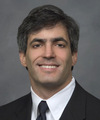
Jason Kipnis is a partner in Weil, Gotshal & Manges’s Silicon Valley office, where he manages the office’s Intellectual Property Counseling practice. He advises clients regarding a wide variety of intellectual property matters, including IP portfolio management, IP litigation, IP enforcement and dispute counseling, IP transactions, and IP audits and due diligence. Other areas of expertise include trade secret protection and management, standards counseling, open source matters, international IP rights management, and identification and acquisition of IP of third parties. Mr. Kipnis has advised clients at various stages of development, and in a wide range of technologies, including computer architecture and system design, software, semiconductor design and fabrication, optics, networking and telecommunications, biotechnology, and medical devices.

Victoria Lee is a partner in the East Palo Alto office of DLA Piper US LLP. Ms. Lee concentrates her practice in strategic intellectual property counseling; technology procurements and transfers; manufacturing agreements; distribution and licensing agreements; open source business models and licensing issues; document retention policies; general business counseling; private and venture financing; startup companies. Her practice includes representation of public and private companies in the software, hardware, networking, semiconductor and electronic commerce industries. She represents both emerging growth and public companies in the open source area, which includes conducting open source audits, drafting and analysis of open source agreements, advising companies on open source business models. Ms. Lee was part of the DLA Piper team that assisted Sun Microsystems, Inc. in open sourcing Solaris and the drafting of the Community Development and Distribution License, an OSI-approved license agreement.

Douglas Lichtman focuses his teaching and research on topics relating to law and technology. His areas of specialty include patent and copyright law; telecommunications regulation; and information strategy and economics. Professor Lichtman joined the faculty at UCLA School of Law in 2007 after a tenured teaching career at the University of Chicago. His work has been featured in numerous journals including the Journal of Law & Economics, the Journal of Legal Studies, the Yale Law Journal, and the Harvard Business Review. He co-authored Telecommunications Law and Policy, a textbook that investigates the federal regulatory regime applicable to broadcast television, cable television, radio, telephony, and the Internet. He also regularly writes in the popular press, with recent pieces appearing in the Los Angeles Times and the policy magazine Regulation.

Robert Litan is the Vice President for Research and Policy at the Kauffman Foundation in Kansas City and a Senior Fellow in Economic Studies at the Brookings Institution. At Kauffman, Dr. Litan oversees a multi-million budget for academic research relating to entrepreneurship. At Brookings, Litan pursues a wide-ranging research agenda, which includes topics in regulation, financial institutions, telecommunications, and general economic policy.
Dr. Litan has been a lecturer in banking law at the Yale Law School, consulted for numerous organizations, (public and private), and testified as an expert witness in a variety of legal and regulatory proceedings involving domestic (banking, antitrust) and international (primarily trade) issues. He also consulted for private sector firms and the Department of Justice on antitrust matters. Among his various assignments, he has written a number of influential federal reports. He co-authored two Congressionally-mandated studies for the Treasury Department on the role of the Community Reinvestment Act after the Financial Modernization Act of 1999. During 1996-97 he has served as a consultant to the Treasury Department and was the lead author of its report to Congress on the future of the financial services industry (American Finance in the 21rst Century), and in 1998-99 he was the main author of the Report of President’s Commission to Study Capital Budgeting. In 1998, he also chaired the National Academy of Sciences Committee on Assessing the Costs of Natural Disasters, which produced a report The Impacts of Natural Disasters: A Framework for Loss Estimation.
Dr. Litan also has served in several capacities in the federal government. During 1995 and 1996, he was Associate Director of the Office of Management and Budget (where he was responsible for overseeing budgetary and other policies of six cabinet agencies). From 1993 to 1995, he was Deputy Assistant Attorney General, in charge of civil antitrust litigation and regulatory issues, at the Department of Justice (where among other matters, he supervised the first Microsoft investigation, which resulted in a consent decree; and the investigation against NASDAQ). From 1977 to 1979, he was the regulatory and legal staff specialist at the President’s Council of Economic Advisers. In the early 1990s, Dr. Litan was a Member of the Commission on the Causes of the Savings and Loan Crisis.
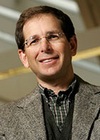
Peter Menell is Professor of Law at the University of California at Berkeley School of Law (Boalt Hall), as well as co-founder and a Director of the Berkeley Center for Law & Technology. After graduating from law school, he clerked for Judge Jon O. Newman of the U.S. Court of Appeals for the Second Circuit. Menell has visited at the Georgetown University Law Center, Harvard Law School, and Stanford Law School; taught an annual course on U.S. intellectual property law at the ETH (Zurich) since 1997; and organized more than two dozen intellectual property education programs for the Federal Judicial Center since 1998.

Robert Merges is the Wilson, Sonsini, Goodrich & Rosati Professor of Law at Boalt, as well as Co-Founder and a Director of the Berkeley Center for Law & Technology. He has written numerous articles on the economics of intellectual property, especially as they affect patent law and the biotechnology industries. In addition to teaching and research projects, Merges also serves as a special consultant to the U.S. Department of Justice, Antitrust Division, and is a member of the Department’s Task Force on Intellectual Property.

Michael Meurer became an economics professor at Duke University and later a law professor at the University of Buffalo. He came to Boston University School of Law in 1999, where he has taught courses in patents, intellectual property and public policy toward the high-tech industry. “It’s a special privilege to be able to speak three times a week to an attentive and thoughtful audience,” he says.
Professor Meurer has received several grants and fellowships, including two grants from the Pew Charitable Trust, a Ford Foundation grant, an Olin Faculty Fellowship at Yale Law School and a postdoctoral fellowship at AT&T Bell Labs. He has served as an expert witness for the Federal Trade Commission on a merger case presenting issues related to patent licensing. He also has consulted with government officials from developing countries about antitrust law, and taught short courses in American intellectual property law at the law faculties of the University of Victoria and the National University of Singapore. “I’m excited by the prospect of having a positive influence on American technology law and policy,” Professor Meurer says. Outside of work, he enjoys playing and watching basketball.

Suzanne Michel is the Assistant Director for Policy in the Bureau of Competition at the Federal Trade Commission. She is also the agency’s chief patent counsel. In that capacity, she is involved in all of the patent and patent/antitrust issues that arise in the FTC’s enforcement and policy initiatives. She speaks frequently on those topics. The FTC awarded her the Paul Rand Dixon award for that work in 2002. Before joining the FTC seven years ago, Suzanne worked in the Civil Division of the Department of Justice where she defended the United States in patent infringement litigation.
Suzanne received her B.S. with honors from Northwestern University and her Ph.D. in Chemistry from Yale University. She graduated from Boalt Hall School of Law, where she was a member of the Order of the Coif and was awarded the prize for best paper published by a graduating student. Following law school she served as a law clerk to the Honorable Paul R. Michel (no relation) at the Court of Appeals for the Federal Circuit. She is a registered patent attorney.

Donald Min is a partner in Knobbe Martens Olson & Bear’s Washington, DC office. Donald’s practice is concentrated in client counseling, patent drafting and prosecution, licensing, and providing patent-related opinions. He has extensive experience in a wide variety of technologies including computer hardware and software, telecommunications, wireless communications, medical devices, online business methods, and audio/video processing.

Gladys Monroy practices in the areas of patents and technology transfer agreements. Her practice includes strategic counseling and comprehensive patent portfolio management for small, medium and large companies. Dr. Monroy has a wide range of experience in the life science related practice areas, as well as special technical expertise in molecular biology, immunology, diagnostics, therapeutics, virology, drug delivery systems, high throughput screening, microarray technology, gene therapy, liposomal technology, small molecules, proteomics and bioinformatics.
Dr. Monroy’s practice also includes writing and processing all matters related to prosecuting patent applications, including interferences, re-examinations and reissues. She also conducts due diligence studies in connection with venture capital, private and public financing, mergers and acquisitions, opinions on patentability, non-infringement and patent validity and counseling during product development. Dr. Monroy has received public recognition for her work, including election to the Patent Hall of Fame and listings in as a leading attorney in Health Sciences by Global Practical Law Co. She has also been named in the Best Lawyers in America directory, as well as one of the top lawyers in Silicon Valley.

Emily Morris is currently a visiting associate professor at Chicago-Kent College of Law and will join the Indiana University – Indianapolis School of Law this fall as an Associate Professor. Her research and teaching interests include patent law, health law and bioethics, Japanese law, and law and economic analysis. Her current work focuses on economic analysis of various patent law issues, including the effects of patent claim construction and scope on incentives and innovation. Emily earned her A.B. from Harvard University and then her J.D. from the University of Michigan Law School, where she was an articles editor on the Michigan Law Review. After law school, Emily clerked for the Honorable Bruce M. Selya on the First Circuit Court of Appeals and then worked for three years as an associate in the Issues & Appeals section of Jones Day’s Washington, D.C., office. The year before visiting at Chicago-Kent, Emily also spent a year as an adjunct assistant professor and Humphrey Fellow in Law and Economic Policy at the John M. Olin Center for Law and Economics, University of Michigan Law School.

Mark Myers is Visiting Executive Professor in the Management Department at the Wharton Business School, the University of Pennsylvania. His research interests include identifying emerging markets and technologies to enable growth in new and existing companies with special emphases on technology identification and selection, product development and technology competencies. Dr. Myers served on the Science, Technology, and Economic Policy Board of the National Research Council, co-chaired, with Richard Levin, the President of Yale, the National Research Council’s study of “Intellectual Property in the Knowledge Based Economy,” and currently serves on the Committee on Comparative Innovation Policy.
Dr. Myers is chair of the board of trustees of Earlham College and has held visiting faculty positions at the University of Rochester and at Stanford University. He holds a bachelor’s degree from Earlham College and a doctorate from Pennsylvania State University.

Sean Pak is a partner with Latham & Watkins’ Los Angeles and San Francisco offices and is a member of the Intellectual Property, Venture and Technology and Litigation practice groups. Mr. Pak has experience in acquiring, licensing and litigating patents and other intellectual property across a wide range of hardware and software technologies.
Prior to joining Latham, Mr. Pak was the vice president of business development and corporate counsel at a privately-held security software company, where he negotiated and managed strategic alliances, distribution channels and technology partnerships. Mr. Pak was also responsible for strategic planning and market research in the areas of Web services, data security, broadband communications and enterprise application servers.
Prior to attending law school, Mr. Pak was an engineer at Intel Corporation, where he designed advanced microprocessors and implemented technology licensing programs in the areas of microprocessors, integrated chipsets, memory devices, data networking and communication systems. Mr. Pak also provided technical expertise in patent litigation matters. While at Intel he was awarded the Intel Certificate of Recognition. He was also a research associate at the MIT Artificial Intelligence Laboratory, where he conducted research on advanced parallel processing computers.

Lawrence Pope was active in all aspects of intellectual property law as a senior member of the Patent Department of pharmaceutical and medical device maker Abbott Laboratories. He was part of a management team which was responsible for developing, implementing, overseeing and improving procedures to see that valid patent protection was obtained in the appropriate countries and defended against infringement and validity challenges. He was responsible for overseeing the budget for outside counsel in support of such activities to insure good quality work was obtained at a reasonable price. He has also been personally involved in patent prosecution worldwide, international licensing, due diligence for major technology focused acquisitions, oppositions before the European and Japanese Patent Offices, special proceedings before the US Patent and Trademark Office including interferences at both the Patent Office and District Court stages, reissues and reexaminations and patent infringement proceedings in the United States as well as countries in Asia, Europe and South America as well as Australia. He was responsible for evaluating the intellectual property aspects of a seven billion dollar pharmaceutical acquisition and oversight and integration of the IP estate obtained with the acquisition. He oversaw successful patent infringement suits in Australia, Brazil, Germany and Italy. He has also overseen numerous patent interferences including appeals from the Patent Office to the District Court and has appeared before the Board of Patent Appeals and Interferences in ex parte and inter partes cases. His work for Abbott included immunodiagnostics and DNA based diagnostics, traditional small molecule pharmaceuticals and recombinant DNA based biologic pharmaceuticals.

Matt Powers is Co-Chair of Weil Gotshal’s 500-attorney Litigation/Regulatory Department and is known for taking tough cases to trial and winning them. He tries patent cases, trade secret cases, fraud cases, fiduciary duty cases and contract cases. Mr. Powers tries cases all over the country and has directed litigations all over the world. Many of the world’s leading companies regularly call on Mr. Powers to lead trial teams in difficult cases, and he is often called on to replace another firm’s litigation team for trial on very short notice.
Mr. Powers is a Fellow of the American College of Trial Lawyers and of the International Society of Barristers and was described by The American Lawyer in 2007 as a “bona fide litigation superstar.” The National Law Journal named Mr. Powers as one of the top ten litigators in the country in 2006, and in 2005 he was named “Trial Lawyer of the Year” by the Santa Clara County Trial Lawyers Association. In 2007, Chambers ranked Mr. Powers an “Extraordinary Star Performer in Patent/IP Litigation” and described him as a “dominant force in the market” and “well liked by judges and genuinely feared as a courtroom opponent,” with “excellent courtroom presentation skills.” In 2003, The American Lawyer named him as one of the top 45 attorneys nationwide under the age of 45 (in all fields), and in October 2002 he was named as one of the top seven IP trial lawyers in the country by IP Worldwide. He is consistently ranked in the top tier in Chambers Global and Chambers USA, as well as PLC Which lawyer? and similar ranking services. He was also named a “Father of the Year” for 2004 by the Father’s Day Council of San Francisco.
Mr. Powers is an Editor-in-Chief of the Intellectual Property & Technology Law Journal, and has published extensively on various aspects of intellectual property law and litigation. He is a frequent lecturer nationally and internationally on intellectual property litigation issues. Mr. Powers teaches a patent litigation course at the University of California, Berkeley’s Boalt Hall School of Law. He serves on the firm’s overall Management Committee.

Arti Rai is an expert in patent law, law and the biopharmaceutical industry, and health care regulation. Her current research, funded by the NIH, focuses on intellectual property issues raised by collaborative R&D in areas ranging from synthetic biology to drug development. Professor Rai joined the Duke Law faculty in 2003. In the winter of 2007, Rai was the Hieken Visiting Professor in Patent Law at Harvard Law School. In the fall of 2004, Rai was a Visiting Professor at Yale Law School. Prior to joining Duke, she was on the faculty of the University of Pennsylvania Law School, where she was also a visiting professor in Fall 2000. From 1997-2001, she was a faculty member at the University of San Diego School of Law.
Rai graduated from Harvard College, magna cum laude, with a B.A. in biochemistry and history (history and science), attended Harvard Medical School for the 1987-1988 academic year, and received her J.D., cum laude, from Harvard Law School in 1991. While in law school, she served as executive editor for the Harvard Civil Rights-Civil Liberties Law Review.

Pam Samuelson is a Professor at the University of California at Berkeley with a joint appointment in the School of Information and the School of Law. She is also Co-Director of the Berkeley Center for Law and Technology. Her principal area of expertise is intellectual property law. She has written and spoken extensively about the challenges that new information technologies are posing for public policy and traditional legal regimes and is an advisor for the Samuelson Law, Technology and Public Policy Clinic. Since 2002, she has also been an honorary professor at the University of Amsterdam.

Suzanne Scotchmer was a Professor of Economics and Public Policy at the University of California, Berkeley, and a visiting scholar at the Berkeley School of Law and the I-School at Berkeley in Fall 2007. Her graduate degrees were in economics and statistics. She held visiting and teaching appointments at Harvard University, University of Auckland, University of Cergy-Pontoise (Paris), Tel Aviv University, University of Paris I (Sorbonne), Berkeley School of Law, the University of Toronto Law School, University of Southern California, Yale University, Stanford University, New School of Economics, Moscow, and Stockholm School of Economics. She is published on intellectual property law, rules of evidence, tax enforcement, cooperative game theory, club theory, and evolutionary game theory. She served on the editorial boards of American Economic Review, Journal of Economic Literature, Journal of Economic Perspectives, Regional Science and Urban Economics, and Journal of Public Economics. She served on committees of the National Research Council (National Academies of Sciences) and was a member of the Board on Science, Technology and Economic Policy. The Department of Justice Antitrust Division used her as a consultant on antitrust matters; and she was a scholar in residence at the Court of Appeals for the Federal Circuit. In 2004 she published Innovation and Incentives with MIT Press. Professor Scotchmer passed away in 2014.

Scott Stern was raised in Hauppauge, NY, and graduated with a BA degree in Economics from New York University. After working for a consulting company in New York, Stern attended Stanford University and received his PhD in Economics in 1996. From 1995-2001, Stern was Assistant Professor of Management at the Sloan School at MIT, and, from 2001-2003, Stern was a Non-Resident Senior Fellow of the Brookings Institution. Stern is an Associate Professor in the Kellogg School of Management at Northwestern University, and a Research Associate of the National Bureau of Economic Research. He is also a co-organizer of the Innovation Policy and the Economy Program at the National Bureau of Economic Research, and the Academic Director of the Kellogg Biotechnology Program. He is also an Associate Editor of Management Science, the International Journal of Industrial Organization, and the Journal of Business and Economic Statistics, a Contributing Editor to the Antitrust Law Journal, and serves on the Board of Management of the International Schumpeter Society. In 2005, Stern was awarded the first Ewing Marion Kauffman Prize Medal for Distinguished Research in Entrepreneurship.
Stern explores how innovation – the production and distribution of “ideas” – differs from more traditional economic goods, and the implications of these differences for business and public policy. Often focusing on the pharmaceutical and biotechnology industries, this research is at the intersection between industrial organization and the economics of technical change. Recent studies examine the determinants of R&D productivity, the role of incentives and organizational design on the process of innovation, and the drivers of commercialization strategy for technology entrepreneurs. A key conclusion from this research is that, particularly for start-up innovators, the ability to translate “ideas” into competitive advantage depends on subtle elements of the firm’s microeconomic and competitive environment. Effective management of innovation depends on the integration between the firm’s commercialization strategy, research organization, and technology development choices.

Margaret Taylor began as an assistant professor at the Goldman School of Public Policy (GSPP) in January 2002. Her research focuses on issues in technology, innovation, and environmental policy, with a particular emphasis on technology strategies relevant to climate change policy. These strategies include: control technologies for both sulfur dioxide and nitrogen oxides emissions from power plants; alternative generation technologies including wind power, solar thermal electric power, and photovoltaic cells; and end-use technologies that reduce demand for power, such as solar water heating. Several of these case studies have arisen from her work for the California Climate Change Center. Her research has won awards from the Academy of Management and the International Institute of Applied Systems Analysis. Her background includes legal and Capitol Hill experience in the areas of international trade, energy, and the environment, as well as consulting experience for government agencies. Her education was at Carnegie Mellon University and Columbia University.
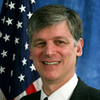
James Toupin received his A.B. degree with distinction from Stanford University in 1973, and his J.D. degree from the Boalt Hall School of Law, University of California at Berkeley, in 1977, where he was a member of the editorial board of the law review. He is a member of the California and District of Columbia Bars.
Mr. Toupin began his career at Covington & Burling in Washington, D.C., specializing in intellectual property and unfair competition law and administrative agency litigation. In 1985-1987, he worked for Memel, Jacobs, Pierno, Gersh and Ellsworth, concentrating on international trademark registration and licensing.
In 1987, he was appointed Assistant General Counsel for Litigation of the U.S. International Trade Commission and subsequently Deputy General Counsel, supervising defense of the ITC’s actions in U.S. courts and international tribunals. He has been a member of advisory committees of the Court of International Trade and the Court of Appeals for the Federal Circuit.
Mr. Toupin became General Counsel of the U.S. Patent and Trademark Office in January 2001. He has executive responsibility for the USPTO Office of the Solicitor, Office of General Law, Office of Enrollment and Discipline, Board of Patent Appeals and Interferences, and Trademark Trial and Appeal Board.

Lee Van Pelt has evaluated patent strategies for investors and planned the patent strategy for emerging companies in Silicon Valley for over a decade. He also prepares patent opinions and provides litigation analysis. Before practicing law in Cupertino, Lee Van Pelt earned a B.S. in Physics, summa cum laude, from the University of Missouri-Rolla, and earned a J.D., Order of the Coif, from the University of California-Berkeley, Boalt Hall School of Law.

Craig Walker is the Senior Product Manager, Voice Products at Google, Inc. Craig was the co-founder and CEO of GrandCentral, a next generation communications company that was acquired by Google in July of 2007. Prior to GrandCentral, Craig was the CEO and Chairman of Dialpad Communications, a consumer Voice over IP company, from 2001 to 2005, when it was acquired by Yahoo! Craig stayed on at Yahoo! and became the Senior Director of VoIP. Prior to Dialpad, Craig was a technology venture investor at both Sterling Payot Capital and TeleSoft Partners. Prior to becoming a VC, Craig was a corporate and securities attorney in the Silicon Valley at Gunderson Dettmer and at Brobeck Phleger and Harrison, where he represented companies ranging from early stage start-ups to Cisco Systems. Outside of work, Craig spends his free time with his wife and three kids and is a board member of the Ascent Russian Orphan Aid Foundation. Craig received his B.A. from UC Berkeley, his M.B.A. from Georgetown University and his J.D. from Boalt Hall School of Law at UC Berkeley.

Mark Weinstein an Intellectual Property partner in White & Case’s Silicon Valley office, concentrates on the litigation of patent and technology-related disputes. He has participated in a number of high-stakes litigations throughout the United States involving a variety of technologies including computer software, Internet applications, electronic transactions, e-commerce, computer networking, entertainment software and medical devices.
Mark served as law clerk to the Honorable Thomas J. Whelan, United States District Court for the Southern District of California. Before entering the practice of law, Mark worked for several years as a professional software engineer in the fields of computer networking, telecommunications and data storage.
Mark is a frequent lecturer on all aspects of intellectual property protection and has taught classes at Santa Clara University on IP litigation.

Rosemarie Ziedonis is an Assistant Professor of Corporate Strategy and International Business. She received her Ph.D. in Business and Public Policy from U.C. Berkeley�s Haas School of Business in 2000. Prior to pursuing doctoral studies, she was an analyst in international trade and finance at the U.S. General Accounting Office, where she evaluated international agreements related to intellectual property and research and development (R&D) programs. She was previously employed by the Institute for International Economics, also located in Washington, D.C.
Prior to joining the UM faculty in 2002, Professor Ziedonis was an Assistant Professor of Strategic Management at the Wharton School. She is currently a Senior Fellow in the Management Department at Wharton and remains affiliated with Wharton�s Mack Center for Technological Innovation.
At Michigan, Professor Ziedonis teaches an MBA elective course she developed, Intellectual Property and Competitive Strategy, and an MBA course in corporate strategy.